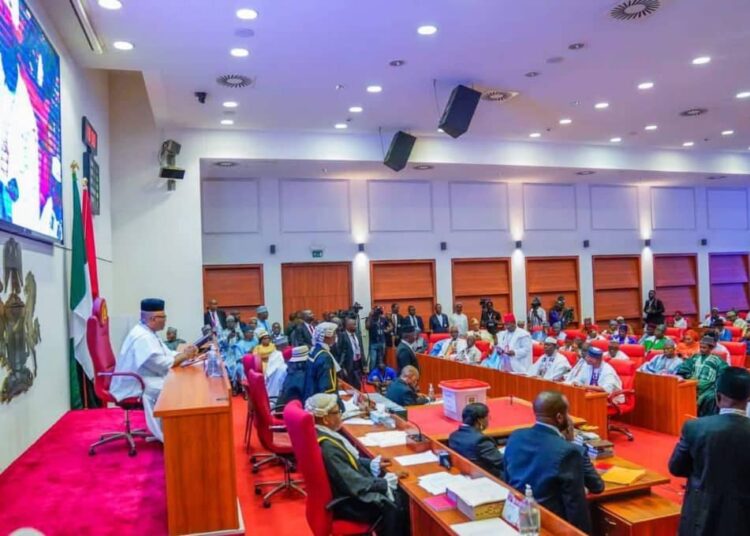The Senate has advanced a bill that would make it compulsory for Ministries, Departments, and Agencies (MDAs) to prioritise local manufacturers and indigenous companies in the procurement of goods and services.
The proposed legislation, which passed its second reading on Thursday, is part of efforts to boost Nigeria’s manufacturing sector and reduce its overdependence on foreign imports.
The bill, titled “A Bill to Mandate MDAs to Prioritise Local Automobile Manufacturers and Indigenous Companies in Procurement Process, and for Related Matters, 2025 (SB. 613),” was sponsored by Senator Patrick Ndubueze (APC, Imo North).
Presenting the bill, Senator Ndubueze noted that while Nigeria has issued 54 auto assembly licences, only six plants are currently operational, many running far below capacity due to forex constraints, infrastructure gaps, and limited patronage. He said several manufacturers have since relocated to Ghana, where new plants are being built to serve the Nigerian market via exports.
“Imported cars continue to account for billions of dollars in forex outflows. One of the biggest expenses of both the public and civil service is the procurement of foreign automobiles,” Ndubueze said. “We must address our appetite for foreign goods and institutionalise support for indigenous brands.”
The bill aims to prohibit the exclusion of locally manufactured goods in government procurement. It proposes a bold requirement that 75% of all official vehicles used by public officers and civil servants be locally manufactured—not merely assembled.
Citing historical precedents and global trends, Ndubueze said countries like China, India, and Malaysia enforced local content mandates to grow their domestic auto industries, and Nigeria must do the same.
“Togo has adopted Nigerian-made Innoson vehicles. Innoson and others are producing SUVs, saloons, electric vehicles, bulletproof vans and more. Their quality is comparable to global standards, and they are worthy of government patronage,” he said.
He also advocated clearer distinctions between assemblers and actual manufacturers, proposing criteria such as majority Nigerian ownership, in-country R&D investment, and employment of at least 70% Nigerian workforce.
Beyond patriotism, he listed several benefits the bill would deliver: “Foreign exchange savings from reduced imports. Boost to FX earnings through expanded manufacturing and exports. Massive job creation through value chain expansion in spare parts, servicing, and logistics. Inspiration for local innovation by demonstrating government support for Nigerian-made products.
“Let us remember that all world powers today have one thing in common: thriving local industries supported by their governments. We must take this bold step toward a more prosperous and self-reliant future,” he added.
The Senate widely supported the bill during debate, underscoring the need to align government spending with national economic goals. The bill will now proceed to the committee stage for further scrutiny.
If enacted, it is expected to significantly alter procurement patterns in the public sector and reposition Nigeria’s indigenous automotive industry as a central player in national development.
We’ve got the edge. Get real-time reports, breaking scoops, and exclusive angles delivered straight to your phone. Don’t settle for stale news. Join LEADERSHIP NEWS on WhatsApp for 24/7 updates →
Join Our WhatsApp Channel









